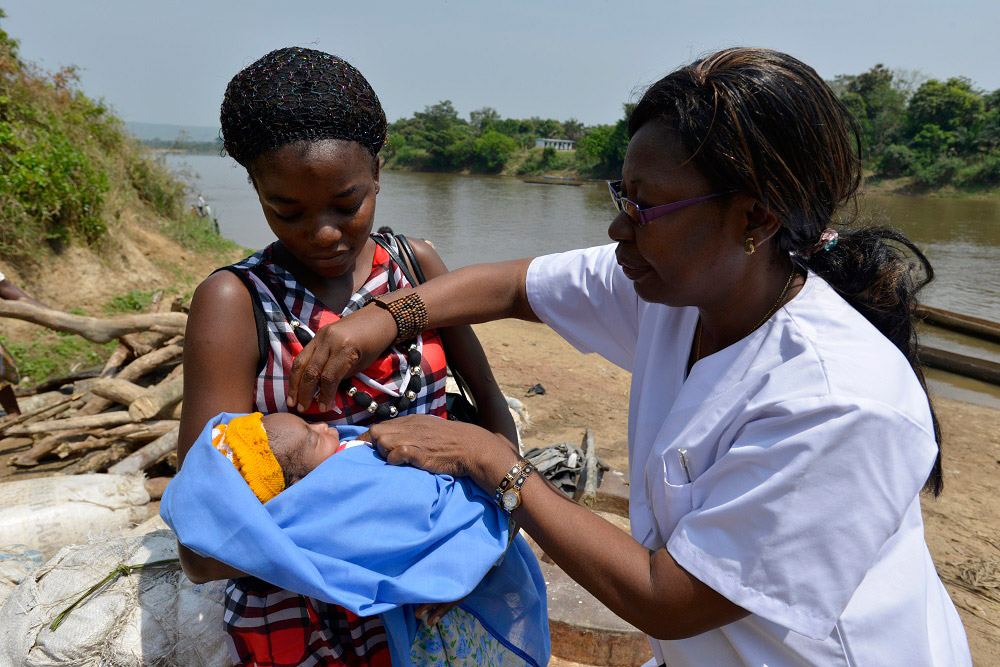News & Updates
World’s first malaria vaccine to be piloted in sub-Saharan Africa in 2018
25 November 2016

The World Health Organization (WHO) has secured funding for the initial phase deployment of the world’s first malaria vaccine. The WHO has announced that the vaccine will piloted in sub-Saharan Africa with immunisation campaigns beginning in 2018.
Malaria infects around 200 million people a year worldwide and killed an estimated 440,000 in 2015. The majority of malaria deaths are among children in sub-Saharan Africa.
“The pilot deployment of this first-generation vaccine marks a milestone in the fight against malaria. These pilot projects will provide the evidence we need from real-life settings to make informed decisions on whether to deploy the vaccine on a wide scale,” said Dr Pedro Alonso, Director of the WHO Global Malaria Programme.
The vaccine, known as RTS,S or Mosquirix and developed by GlaxoSmithKline, acts against P. falciparum, the most deadly malaria parasite.
Whilst clinical trials have shown RTS,S only provides partial protection against malaria once the four-dose schedule has been completed; it is the first approved vaccine combating the devastating mosquito-borne disease.
The WHO has emphasised that because the new vaccine alone is not an absolute malaria prevention tool, it should be used alongside existing measures and tools including: long-lasting insecticidal bed-nets; spraying inside walls of dwellings with insecticides; preventive treatment for infants and during pregnancy; prompt diagnostic testing; and treatment of confirmed cases with effective anti-malarial medicines.
“Ending malaria, a disease that kills a disproportionate number of children, is going to require a high degree of ingenuity and boldness. We must seize the opportunity to pilot a vaccine that could strengthen the means at our disposal to combat this deadly disease.” said Lelio Marmora, Executive Director of UNITAID.
On the issue of which countries will be selected for the pilot deployment of the vaccine, the WHO statement said “Consultations are ongoing and the names of the 3 selected countries will be announced in the coming weeks.”
The financing of the vaccine:
- The Global Fund to Fight AIDS, Tuberculosis and Malaria has approved U$15 million for the malaria vaccine pilots, assuring full funding for the first phase of the programme.
- Earlier this year, the Gavi, the Vaccine Alliance and UNITAID announced commitments of up to $27.5 million and $9.6 million, respectively, for the first 4 years of the vaccine programme.
- RTS,S was developed through a partnership between GlaxoSmithKline and the PATH Malaria Vaccine Initiative (MVI)
- The two bodies were received support from the Bill & Melinda Gates Foundation and from a network of African research centres.
“WHO recognizes and commends the leadership and support of all funding agencies and partners who have made this achievement possible,” said Dr Jean-Marie Okwo-Bele, Director of the WHO Department of Immunization, Vaccines and Biologicals.
Over 70 expert speakers will gather at the 2nd annual Aid & Development Africa Summit in Nairobi to discuss latest technologies and initiatives to support health SDGs in Sub-Saharan East Africa. Taking place on 28 February-1 March 2017, the Summit will feature a number of sessions dedicated to innovations and best practice to tackle communicable diseases and improving maternal and child health in the region.
Visit http://africa.aidforum.org/agenda/ for more details.
Register your participation at: http://africa.aidforum.org/register
IMAGE SOURCE: UNICEF/Sebastian Rich